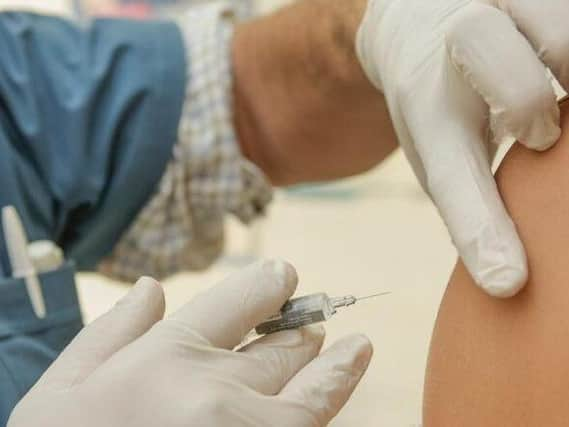Buckinghamshire hypnotherapist to help people 'overcome fear of needles'


This is great news for the majority of people but for those who have an extreme fear of needles, which is also known as Trypanophobia, it presents yet another challenge.
Many people fear injections to some extent, but once that fear becomes persistent, excessive and unreasonable, it becomes a phobia.
Advertisement
Hide AdAdvertisement
Hide AdAlthough injection phobia isn’t well recognised, it is in fact extremely common and it is estimated that it affects approximately 10% of the UK population.
Marie Liddiard a Clinical Hypnotherapist said:
"Needle phobias can often be traced back to childhood, stemming from memories of painful injections, which are often inaccurate. I can remember standing in line in alphabetical order for injections at school, always last because my surname began with W, listening to the tales of those who had already had their injection before me.
"Witnessing the distress and nervousness of others around me certainly did nothing to allay my own fears.
"Childhood fears can also be exacerbated by close relatives or friends who have phobias of their own. These can then be transferred onto a vulnerable young person and remain with them for years to come, creating a continuous cycle of fear.
Advertisement
Hide AdAdvertisement
Hide Ad"A fear of needles could also be attributed to evolution. Dating back thousands of years our ancestors were highly susceptible to infection or even death, as a result of being pricked by a sharp object. Medical advances, including the development of antibiotics mean that infections can be easily treated and full recovery made."
Marie will be donating 20% of fees taken for treatment of needle/injection phobia to a local charity.
She said: "If you would like to suggest a charity which you feel may really benefit from additional funds, feel free to email me or if you would like further information
about hypnotherapy to help you, please contact me to book a free no-obligation consultation at [email protected] or visit my website at asensetherapy.co.uk.
"We also have online sessions available."
Advertisement
Hide AdAdvertisement
Hide AdShe concluded: "Clinical hypnotherapy can be very effective in the treatment of phobias, and in a reasonably short space of time too. A hypnotherapist can induce a
deep state of relaxation and use visualisation techniques once this is achieved, to help their client to find the cause of their fear. It is then possible to desensitise the negative emotions attached to this fear."